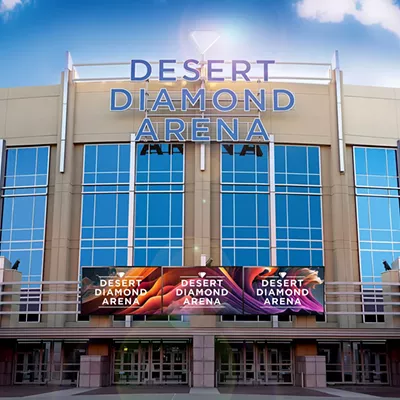Arizona has boldly embraced blockchain technology, setting groundbreaking examples for states across the country. The state encourages academic research and even considered adopting cryptocurrency for tax payments, highlighting an ambitious vision for its future. Arizona is on the verge of spearheading a tech-led revolution that could bring some substantial economic impact.
Legal and Collaborative Approaches to Blockchain
The current price of Bitcoin in dollars can fluctuate (currently it hovers around $32,000), but Arizona's commitment to blockchain is unwavering. Arizona is characterized by its innovative legislative body, a collaborative research center, and a supportive business environment. With this strong foundation, Arizona stands ready to assume a prominent position in shaping the discourse around blockchain throughout the country.
Back in 2018, people took note of Arizona Senate Bill 1091, even though it was eventually vetoed. It proposed that citizens could pay income taxes with Bitcoin which would have been a revolutionary move towards mainstream acceptance of cryptocurrencies. Although not actualized yet, this bill reflects Arizona's readiness to try out new financial systems. The innovative stance is further proved by the creation of the Arizona Blockchain Applied Research Center (AZ BARC).
Powering Businesses with Blockchain Solutions
The AZ BARC operates as a powerful joint initiative between big industry players such as Intel and the academic prowess of Arizona State University. Their combined strength enables them to address practical problems using blockchain technology. They concentrate on things like reliable identity control and improving supply chains. Consider a situation in which blockchain technology ensures the security of private medical records in Tucson or guarantees that fresh retail groceries are accompanied by a transparent and unalterable source history. These are some potential scenarios that are plausible when it comes to blockchain innovations.
AZ BARC's influence can be seen throughout the business landscape of Arizona. It's estimated to boost the economy by generating vast income and creating well-paid jobs in Arizona in the coming decade. Within just two years, it was projected that taxpayers would see a favorable return on the state's investment. Thanks to Arizona's dynamic startup scene, AZ BARC attracts blockchain businesses like a magnet, encouraging a thriving cryptocurrency ecosystem. Tuscon is at the forefront of all of this too. It's attracting blockchain companies with appealing incentives and collaboration between businesses. This interest in blockchain could drive Tucson’s economy towards a new era of innovation in the Sonoran Desert.
Transparency in the Current Era of Blockchain
While rent continues to rise throughout the state, Arizona's commitment to blockchain advancement raises some questions. There's a definite need for transparency when it comes to politicians' financial declarations. These compulsory reports provide only limited information about possible conflicts of interest because they don't officially require the disclosure of cryptocurrency investments. This situation is causing concern due to the increasing rent prices burdening Arizona residents and the ongoing support for blockchain laws. The push for disclosing crypto assets isn't new. Some time ago, state Democrats urged legislative members to declare their digital currency possessions in line with national legislation for Congress members.
Nonetheless, statewide representatives are not obligated to do so like their national counterparts. This issue is pretty well exemplified by Representative Domingo DeGrazia, who supports disclosing crypto holdings. Although he has small Bitcoin and Ether investments, there is no specific section on the official declaration forms for him to list them. It's possible that this ambiguity could lead to potential conflicts of interest being concealed as Arizona becomes more open to cryptocurrencies. Senator Wendy Rogers supports cryptocurrency-friendly laws, like accepting digital currency payments by the government. She's also involved in the committee that is shaping digital currency regulations in Arizona.
Arizona's Sustainability and Educational Efforts
Arizona is expanding its blockchain goals beyond the finance sector. The state is considering more eco-friendly solutions due to the environmental issues linked with blockchain tech and the power it consumes. The Proof-of-Stake (PoS) model, an environmentally friendly substitute to energy-demanding methods, is gaining momentum. This change establishes Arizona as a key state implementing green blockchain applications, potentially pulling in companies and investors that value responsible and sensible technological progress.
Tucson is known for its innovative work in fields such as optics and aerospace. Now, it is also becoming a major center of blockchain technology. Local universities are pulling in skilled individuals and encouraging new research projects. A brand new science lab costing $85 million was just created a few years ago. At the same time, new businesses are creating industry-specific blockchain applications. This shared determination, along with Arizona's commitment to long-lasting solutions, establishes the state as an area where revolutionary ideas can develop and potentially reshape the future of blockchain technology.
The Desert Blooms with Blockchain
While leaning into blockchain technology stands as a positive development initiative, it's essential for transparency and maintaining public support. Working towards shaping an inclusive future that benefits all Arizonans should always remain the goal. Residents of Tuscon should keep an eye out for the exciting developments that are just around the corner in Arizona's blockchain industry.








